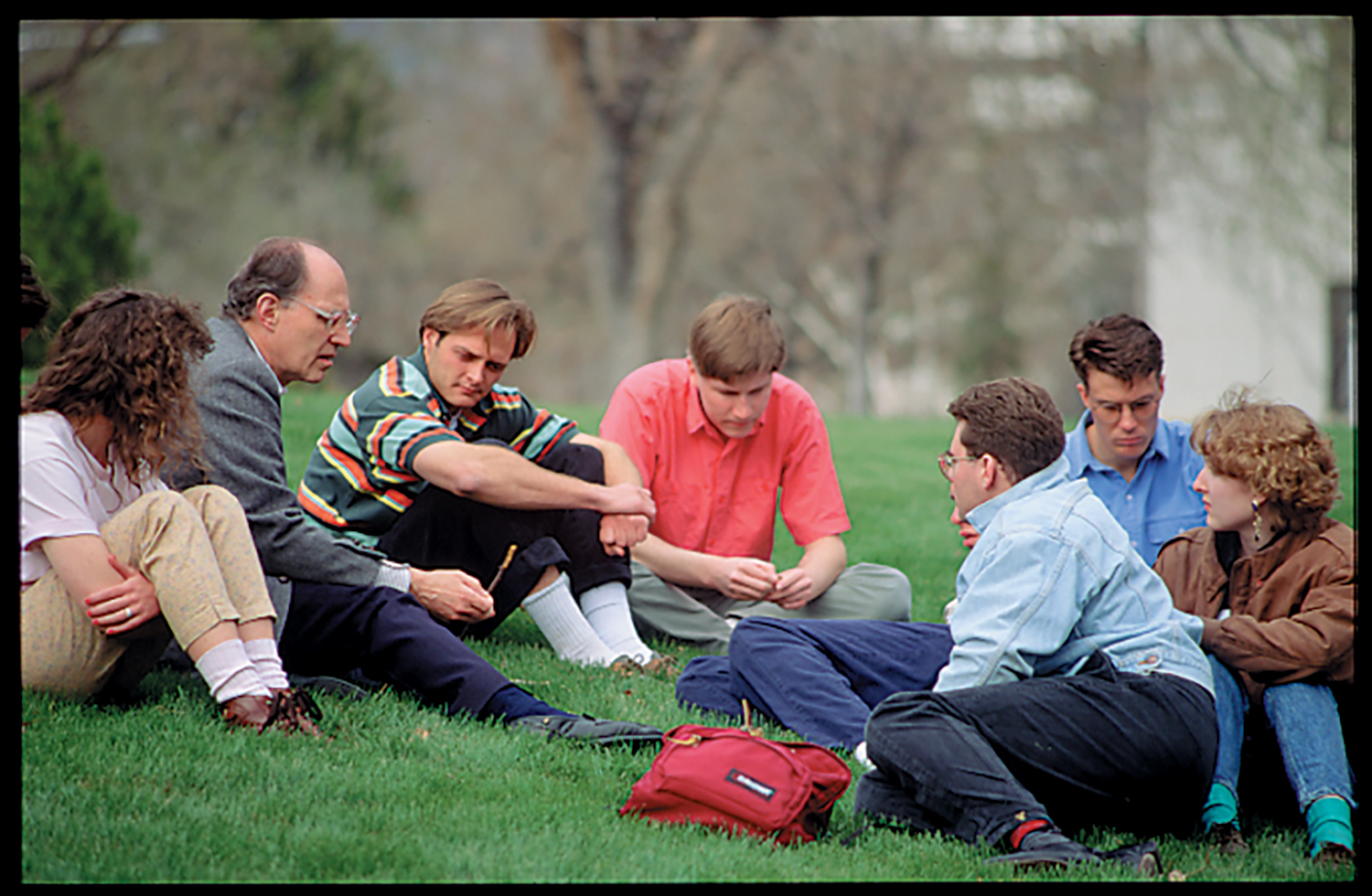By Michael Smart and Jeff McClellan
In a world of rapidly drifting social and cultural standards, the future of civilization depends on stable families, said President Boyd K. Packer recently. Speaking at BYU’s gala event announcing the new School of Family Life, the acting president of the LDS Church’s Quorum of Twelve Apostles stressed the importance of the teaching, research, and writing that can be done in the new school.
“If you succeed–and you must succeed–those teachings and those textbooks should be laced through and through with the moral and spiritual values of the Church whose university this is, without avoidance and without apology,” he said. “I know of no greater service that this, the Lord’s university, can give to his church than through this School of Family Life.”
Replacing the Family Science Department, the School of Family Life will be home to BYU’s 37 family science scholars. BYU is among a handful of universities with such a large contingent. Degree programs previously housed in the Family Science Department will be transferred to the school, and the school will strengthen BYU’s contribution to family public policy. The gerontology certificate program will also be offered through the school. Under the umbrella of the College of Family, Home, and Social Sciences, the school’s director, family science professor James M. Harper, will report to Dean Clayne Pope.
“A major purpose of the new School of Family Life is to build bridges across the campus so that people from different departments and in different parts of the university who have interests in family issues can come together,” said BYU president Merrill J. Bateman at the school’s announcement. Interested professors across campus will become associated faculty in the school, engaging in family-related research within their own disciplines and teaching family-oriented classes.
Harper says the school will fill a previously vacant coordination role: “People in the Marriott School of Management have some interest in how family life and work interface; certainly what goes on in families influences things like productivity in the work place, and what goes on at work certainly influences family life. There’s very much an interface between those two. And yet there’s been no way to coordinate research or study in those areas.”
Scholars outside the university laud BYU’s new approach.
“BYU is poised to offer, in a coordinated fashion, a breadth and depth of family-related courses that are unique in the nation,” says William H. Doherty, president of the National Council on Family Relations and a professor of family social science at the University of Minnesota. “BYU’s current Family Science Department is already in the first tier of family studies departments nationally, and this new school can only increase its status, visibility, and leadership.”
While such praise is gratifying, Harper says academic reputation isn’t the end goal of the school. “That will be a byproduct of all we do. Our goal is really to reach out in a way that we haven’t done to students, to the scholarly community, and to the public at large.”
The school has three main areas of focus: education, research, and outreach. With the help of two advisory boards, the school’s faculty and administrators are shaping curriculum to better train family life professionals and more effectively prepare future spouses and parents. To raise the level of research and increase the impact of BYU worldwide, administrators will coordinate and encourage the efforts of faculty members across campus.
Alan J. Hawkins, associate director of the school and director of the Family Studies Center, says, “The primary way that BYU is going to influence the world is through the students we send out–not by the academic articles I publish in the leading journal and not by my feeble attempts to reach out and help people. The most far-reaching effects we will have in terms of strengthening families are going to come through our students.” The new school will educate the largest number of undergraduate students studying family issues and relationships in the nation.
At the announcement, President Packer said the charter for the School of Family Life is the LDS Church’s 1995 family proclamation. “If we follow the great Plan of Redemption,” he said, “our anchor will be as fixed as the granite peaks of Timpanogos which watch over this campus. And when those peaks erode into dust, we with our families will yet endure.”









